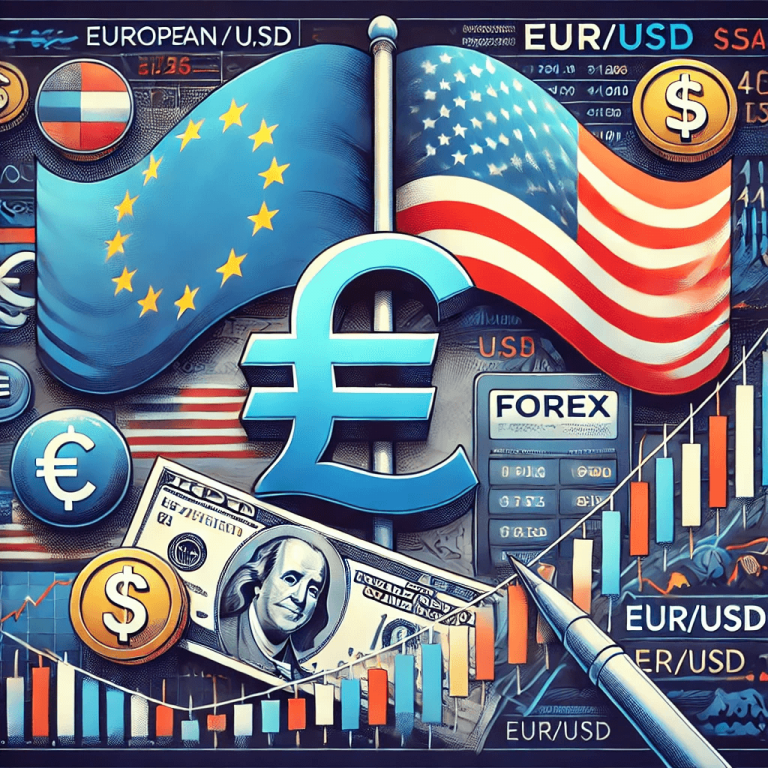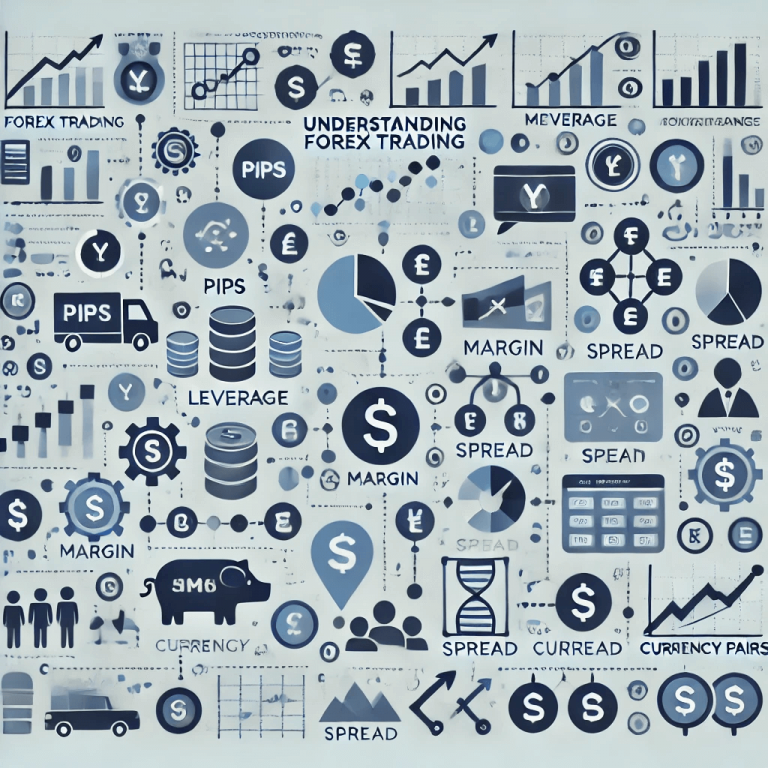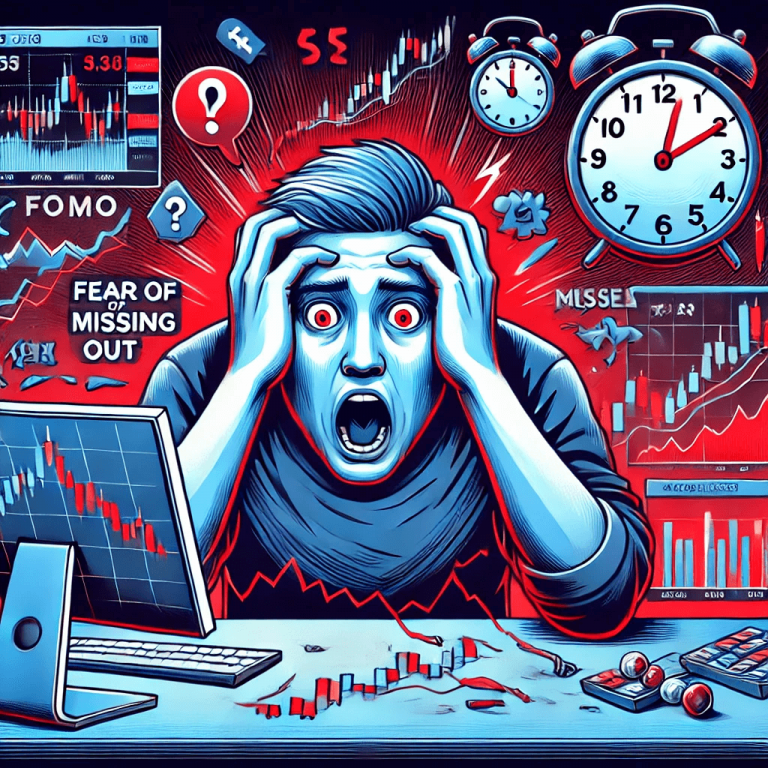It is a common belief to view Forex as a form of speculation resembling gambling. Some claim that trade outcomes are entirely random and solely a matter of chance. Others emphasize the importance of strategy, analysis, and risk management as the key elements of successful trading. Is Forex truly a pure lottery, or is it rather a predictable market where long-term profits can be achieved?
Pure lottery or predictable market?
Table of Contents
- Pure Lottery or Predictable Market?
- Are Price Movements Random?
- The Role of Analysis in Trading – Randomness or Repeatable Patterns?
- The Most Popular Forex Market Strategies
- Trader Psychology – Emotions versus Mathematics
- Risk Management – A Strategic Element or a Protection Against Loss?
- Is Long-Term Success Achievable in the Forex Market?
Key Information
- Forex is not merely a game of chance – it is a market governed by mechanisms based on fundamental and technical factors.
- Both fundamental and technical analysis, as well as risk management, are crucial for trading success.
- Trading strategies such as scalping, day trading, swing trading, and carry trade each have their advantages and disadvantages, depending on market conditions.
- Trader psychology and emotional control form the foundation of stability in the Forex market.
- Statistical data indicate that between 70% and 90% of traders lose capital in a short period, emphasizing the need for discipline and proper risk management (Source: IMF, https://www.imf.org/).
Pure Lottery or Predictable Market?
At first glance, price movements in the Forex market may appear chaotic, difficult to understand, and nearly impossible to predict. Changes in the currency market often give traders the impression that decisions regarding future exchange rates are entirely random.
Nevertheless, many experts and professional investors argue that the Forex market is subject to certain laws and mechanisms that can be analyzed and which stem from fundamental and technical factors. Understanding these mechanisms enables the creation of strategies that can significantly increase the chances of success.
Are Price Movements Random?
Modern financial theory, known as the Efficient Market Hypothesis, posits that asset prices on the market (including currencies) reflect all available information, making it impossible to predict their future direction. Proponents of this theory claim that all price changes are random and cannot be forecast effectively.
However, although the Efficient Market Hypothesis has its supporters, real market practice shows that investors, by employing various analytical tools, can identify recurring patterns and trends. Even if the Forex market exhibits a degree of randomness, it is still influenced by external factors such as macroeconomic events or political decisions. Data from the World Bank indicate that the volatility of major currency pairs has increased by approximately 15% over the last decade (Source: World Bank, https://www.worldbank.org/).
| Factor | Impact | Example |
|---|---|---|
| Monetary Policy | Interest Rate Changes | Central Bank Decisions |
| Economic Data | Economic Indicators | GDP, Inflation |
| Global Events | Sudden Changes | Brexit, Financial Crises |
The Role of Analysis in Trading – Randomness or Repeatable Patterns?
Unlike gambling, where the outcome is completely random, market analysis-based trading can become a tool that enables better understanding and forecasting of future price moves. To succeed in the Forex market, investors must develop an approach that allows them to identify repeatable patterns and trends.
Fundamental analysis focuses on examining economic factors that influence currency exchange rates. The main indicators include interest rates, inflation, gross domestic product (GDP), trade balances, and central bank decisions. In contrast, technical analysis is based on studying charts and the historical price behavior of financial instruments.
Market psychology also plays a role in shaping investors’ decisions. Emotions such as fear, greed, panic, or euphoria greatly impact market participants’ behaviors. According to OECD data, 60% of investors believe that emotional control is a key element to trading success (Source: OECD, https://www.oecd.org/).

The Most Popular Forex Market Strategies
The main strategies in the market include:
- Scalping – involves executing numerous small trades within short time frames, aiming to profit from minimal price changes.
- Day trading – is a strategy in which all trades are executed within a single session, thereby avoiding the risk associated with holding positions overnight.
- Swing trading – relies on capitalizing on short-term trends by holding positions for several days or weeks.
- Carry trade – is a strategy based on profiting from the interest rate differential between two currencies. Investors borrow a currency with a low interest rate and invest in a currency with a higher rate, aiming to profit from the difference in rates.
Trader Psychology – Emotions versus Mathematics
Trading in the Forex market is not only about technical and fundamental analysis but also involves a psychological aspect that often determines a trader’s success or failure. Investment decisions are largely influenced by emotions, which can lead to irrational behavior and deviations from an established strategy.
Strong emotions such as fear, greed, or euphoria may lead to frequent mistakes. One of the most common is overtrading – engaging in too many trades on impulse or in an attempt to quickly recoup losses. Such an approach increases risk and can rapidly deplete capital. Another error is the fear of loss, causing traders to close positions prematurely and forgo potential profits. Conversely, greed results in holding positions too long in the hope of securing even greater gains, which often ends with a sudden market reversal and the loss of accrued profit. “Discipline and a systematic approach are the most important tools in a trader’s arsenal,” emphasizes Dr. Michael Thompson, a UK-based analyst (Source: Financial Times).
To effectively control emotions in trading, it is essential to develop a trading plan that clearly defines the conditions for opening and closing positions, as well as the levels for Stop-Loss and Take-Profit. Such a plan helps to limit impulsive decisions and minimize the impact of emotions on trading. Automation of decisions—such as using trading algorithms or setting pending orders—can also help eliminate the need to make decisions during emotionally charged moments. More and more traders are also employing mindfulness techniques, which help maintain calm and a rational approach even in highly volatile market situations.
Risk Management – A Strategic Element or a Protection Against Loss?
Risk management is the cornerstone of effective trading, enabling the limitation of potential losses and increasing the chances of long-term success. Many novice traders focus solely on entry strategies, neglecting risk control, which often leads to rapid capital loss. Conscious risk management protects against significant losses and contributes to the stability of trading results.
One of the basic elements of risk management is the Risk/Reward Ratio. It defines how much a trader is willing to risk in a single trade relative to the potential profit. For example, if an investor risks 100 dollars in order to earn 300 dollars, the ratio is 1:3. Maintaining an appropriate risk-to-reward ratio means that even with a lower number of successful trades, a trader can still remain profitable.
Effective position protection requires the use of Stop-Loss and Take-Profit orders. A Stop-Loss limits the maximum loss by automatically closing a position when the price reaches a predetermined level, thus avoiding situations where a trader holds a losing position in the hope of a market reversal. Conversely, Take-Profit closes a trade when the price hits the established profit target, eliminating the risk of forfeiting gains due to a sudden market shift.
Another crucial element of risk management is portfolio diversification, meaning spreading investments across different assets to minimize the impact of negative movements of any single position on the overall capital. Avoiding excessive exposure to a single financial instrument protects against large losses in the event of adverse market changes. Many experienced traders also limit the maximum risk per trade—typically to 1-2% of the entire capital—which allows them to stay in the market longer even in the face of a series of losses.

Risk management is not merely a protective mechanism, but an integral part of a trading strategy. It is this element that ultimately determines long-term stability in trading outcomes.
Is Long-Term Success Achievable in the Forex Market?
The Forex market attracts many investors with the promise of quick profits, yet statistics show that most traders lose their capital within the first few months. It is estimated that between 70% and 90% of market participants incur losses, with only a small group achieving long-term success. The reasons include inadequate preparation, an excessive appetite for risk, and an emotional approach to trading. Analyses by international financial institutions have shown that only about 10% of traders manage to stay in the market for more than a year (Source: World Bank, https://www.worldbank.org/).
Can the average investor hope to profit in the long run? Yes, but it requires more than just a basic understanding of market fundamentals. Success in trading does not hinge on finding a “golden strategy” but on consistency, emotional control, and skillful risk management.
Losses are inevitable; however, it is possible to keep them at a controlled level and focus on gradually building capital rather than on rapid wealth accumulation. Traders who learn from their mistakes, approach the market with discipline, and avoid making decisions based on emotions, have a significantly higher chance of achieving long-term success.
Forex is not a lottery, but it is also not a domain where anyone can easily earn money. Successful trading requires knowledge, experience, and a conscious approach to risk. There are investors who consistently achieve profits – and this is not a result of luck, but of hard work, strategy testing, and emotional control. Those who treat Forex as a game of chance usually lose their capital quickly, whereas those who build their skills and adhere to risk management rules have a chance at long-term success.




